Residual Waste and its impact on pollution
24 October 2023, By PLAEX Technologies
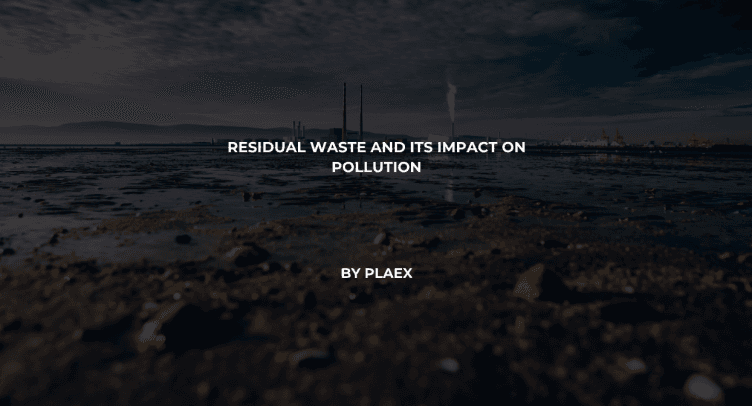
The management of waste has become a massive concern, with the ever-increasing accumulation of residual waste having dire consequences for our environment.
At PLAEX Technologies, we recognize the urgent need for innovative waste management solutions to tackle the escalating challenges of waste accumulation. Our team aims to provide you and your business with an in-depth understanding of the subject, ensuring that you are well-informed about this critical environmental issue.
In today's newsletter article, we will discuss about the issue of residual waste in the Netherlands and its profound impact on pollution.
What is Residual Waste in the Netherlands?
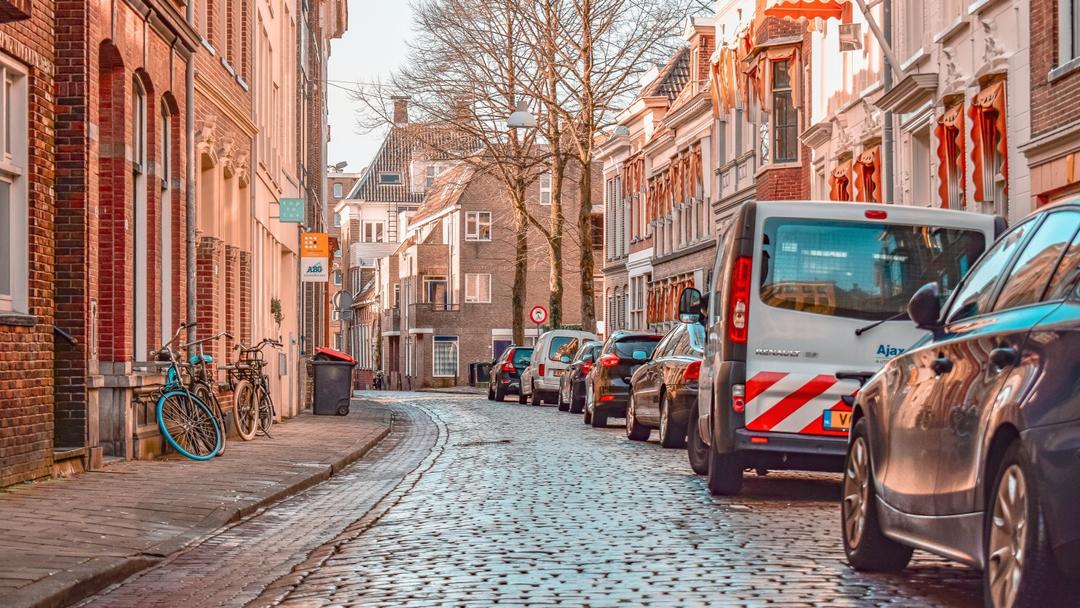
In the Netherlands, it is mandated by law to separate various types of household waste, including vegetable, fruit, and garden waste (VFG waste), plastics, metals, and drinks packaging (PMD waste), small chemical waste (SCW waste), glass, waste paper and cardboard, textiles, white and brown goods, renovation waste, preserved wood, bulky garden waste, asbestos and asbestos-containing waste, bulky household waste, and household residual waste.
The aim is to promote recycling and reduce landfilling. When it comes to businesses, there are unique challenges related to residual waste recycling in the Netherlands.
Residual waste refers to waste that cannot be recycled or separated into specific categories. Some of the problems that businesses face with residual waste recycling include:
- Cost- Disposing of residual waste can be expensive for businesses, as they often have to pay disposal fees or hire waste management services.
- Space- Many businesses have limited space for waste storage, and managing large volumes of residual waste can be a logistical challenge.
- Environmental Impact- Improper disposal or inefficient recycling of residual waste can have adverse environmental impacts, contributing to pollution and resource depletion.
- Compliance- Businesses must comply with waste management regulations, including proper documentation and reporting, which can be complex and time-consuming.
- High Operational Costs- Managing waste can be expensive, impacting a company's bottom line.
- Inefficient Collection- Traditional waste collection methods may not be optimised, resulting in unnecessary costs.
- Environmental Impact- Poor waste management contributes to pollution and harms the environment.
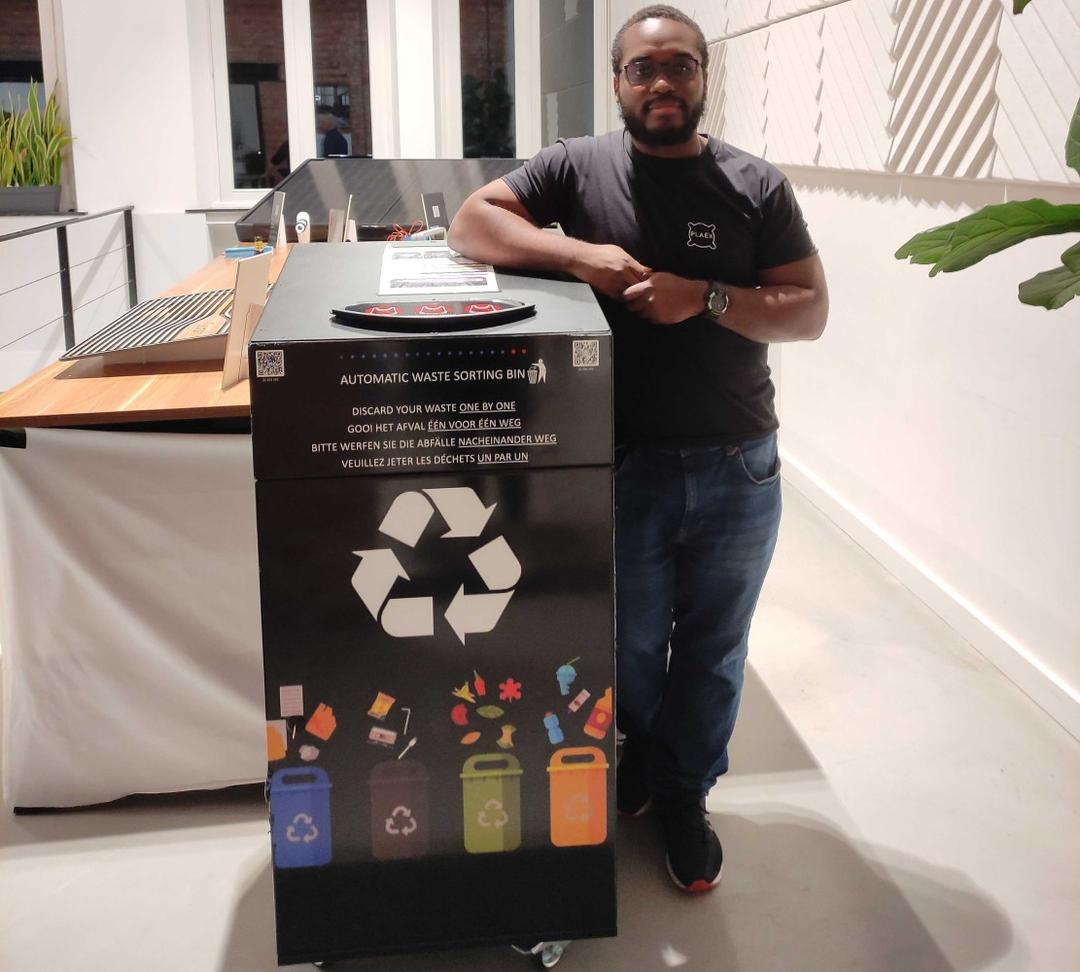
This is where our AI waste bin solution can make a significant difference. With the use of AI technology, businesses can intelligently identify and sort different types of waste, including residual waste. This eliminates the need for businesses to manually sort or separate waste, saving time and reducing errors.
We aim to assist businesses in achieving more efficient and sustainable residual waste recycling practices in the Netherlands by addressing the problems of cost, space, environmental impact, and compliance.
Businesses in the Netherlands can utilize our AI waste bin solution and take a proactive step towards smarter waste management. Contact us today to explore how our AI waste bin solution can address your waste management practices.
What are the Effects of Residual Waste?
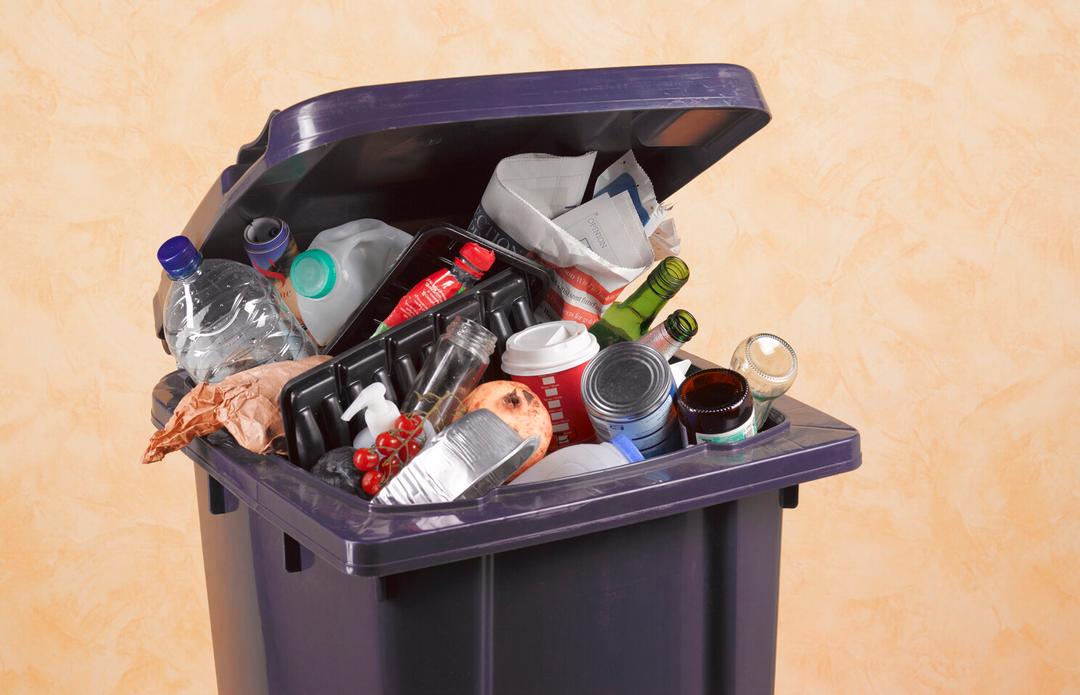
Residual waste in business enterprises refers to the non-hazardous waste generated in these commercial establishments. It includes solid, liquid, or gas waste materials that are not classified as hazardous and are produced as a result of regular office operations and commercial activities.
In offices, residual waste can consist of items such as paper waste, non-recyclable plastics, food waste, packaging materials, and general office supplies. Shopping malls generate residual waste from various sources, including food courts, retail stores, and maintenance activities. This waste may include packaging materials, food waste, non-recyclable items, and disposable products.
Residual waste can have several negative effects on the environment and human health. Improper disposal or management of residual waste can lead to pollution of air, soil, and water resources.
When it comes to waste management, there are typically three main categories: paper, PMD, and organic. Smart bins are innovative waste management solutions that can effectively address the key pain points faced by offices, festivals, and shopping malls.
Garby utilizes advanced technology, such as sensors and real-time monitoring, to optimize waste collection processes. This ensures that bins are emptied timely, reducing the risk of overflowing bins and maintaining cleanliness in these establishments.
Our smart bins also encourage proper waste separation through its smart design. It may include color-coded compartments that accurately identify the type of waste being sorted using artificial intelligence. With its efficient waste management features, Garby helps maintain a clean and hygienic environment in offices, festivals, and shopping malls. It reduces the chances of unpleasant odors and unsightly waste accumulation, enhancing the overall ambiance by preventing overflowing bins.
Residual waste consists of items that cannot be effectively recycled or composted due to their composition or treatment requirements. This unrecyclable waste may include materials like certain types of plastics, mixed materials, or hazardous substances
As of 2020, the recycling rate for residual waste in the Netherlands remains below the target set by the European Commission. On average, Dutch municipalities have been able to recycle around 50% of their waste over the years. Despite separate curbside collection and the provision of special containers, the recycling rate experienced a slight decline from 50% in 1998 to 48% in 2012.
In terms of Europe as a whole, the effects of residual waste continue to present significant challenges. In 2020, it was reported that the European Union generated approximately 225 million tonnes of municipal waste, with only 43% of the waste being recycled.
The unrecycled waste is often disposed of in landfills or incinerated, leading to environmental pollution and a lack of resource utilization. Furthermore, the inadequate management of residual waste contributes to increased greenhouse gas emissions.
The inefficient management of residual waste poses significant challenges for businesses in the Netherlands and Europe. The low recycling rates and improper disposal methods not only contribute to environmental pollution but also result in wasted resources and increased greenhouse gas emissions.
These problems create a pressing need for innovative solutions that can optimize waste management processes and promote a circular economy. At PLAEX Technologies, we understand these challenges and have developed advanced AI waste bin solutions to address them.
Book a meeting with us today, and let's discuss how our technology can help your business achieve more efficient and sustainable waste management practices in the Netherlands and beyond.
How Does Waste Affect Pollution?
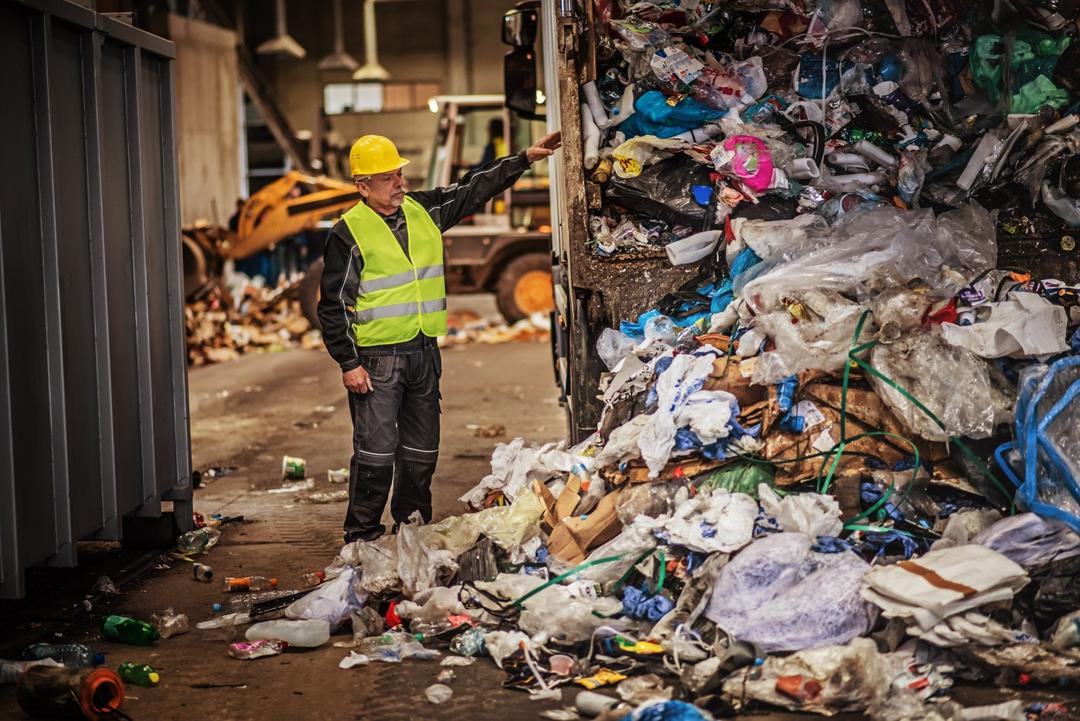
Residual waste in the Netherlands, similar to other regions, can have several negative effects on pollution:
- Environmental Pollution- Residual waste includes non-recyclable materials that, if not managed properly, can release harmful substances into the environment, contributing to pollution. This pollution can affect fields and surface waters, damaging ecosystems and wildlife.
- Incineration- Much of the residual waste in the Netherlands is incinerated. While this process can generate energy, it also releases pollutants into the air, contributing to air pollution and potentially harming public health.
- Collection and Disposal- The collection and disposal of residual waste has changed in the Netherlands. Despite efforts to promote responsible waste disposal, illegal dumping and littering can still be a problem in certain locations like Den Haag where people are immediately fined by the municipality when they are caught disposing waste improperly. This not only has negative environmental impacts but also affects the aesthetics of the surroundings.
Final Thoughts:
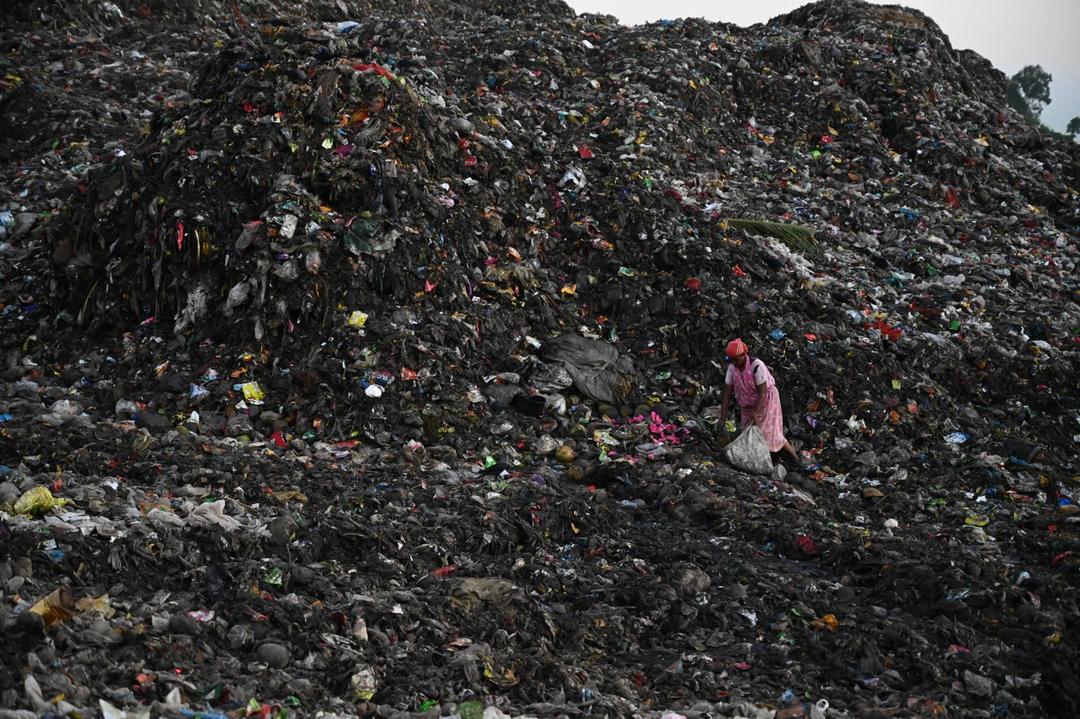
In order to address the challenges faced by businesses in the Netherlands and Europe regarding residual waste, it is crucial to embrace innovative waste management solutions.
At PLAEX Technologies, we are committed to providing cutting-edge AI waste bin solutions, such as our flagship creation, Garby. With advanced sorting capabilities and real-time monitoring, Garby enables businesses to optimize waste management processes, reduce costs, and minimize environmental impact.
Together, we can make a significant impact on waste management and environmental sustainability.
Book a meeting with us to explore how our smart waste bin technology can revolutionize your waste management practices.
FAQ (Frequently Asked Questions)
Can two objects be thrown inside Garby at once?
Yes! However 2 different waste types at once is a cross-contamination event, and it will all go to residual waste.
How do I know when the smart bin is full?
The fill levels are indicated on the front lights, and you can see this on the online dashboard.
Can I know how much kg of waste is produced?
Yes! This is all shown on the dashboard as Garby has an integrated weighing scale
What do the different lights mean?
Blue indicates paper waste, green indicates organic waste, yellow indicates PMD waste and brown indicates residual waste.
Can the streams be customized?
Yes! All four different waste streams are customizable.
How long does Garby take to sort waste?
It's fast and performed in quick succession. To be exact, Garby takes 2.5 seconds to sort waste.
How can I get Garby?
Get in contact with us and we'll get you one as soon as possible. Reach out to us on plaex.net/contact or send an email to hello@plaex.net.